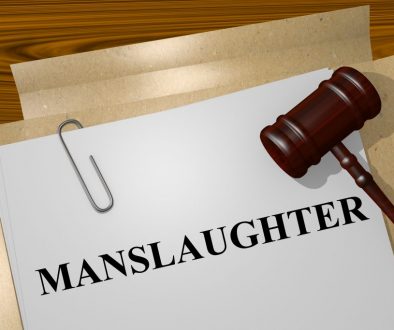Actions don’t always speak louder than words
Many illegal narcotic, drug and gun cases start with a traffic stop or some other contact with police or law enforcement. Our criminal defense law firm represents individuals in a number of cases where police come in contact with someone because our client is in an area that is known for a high level of criminal activity. This is especially true in large cities like Philadelphia where it’s very easy to find yourself in different neighborhoods by simply walking in one direction or another.
It isn’t unusual for police to stop someone for a minor traffic offense like a broken taillight, excessive tint on the windows, or an obstruction in the rearview mirror and it leads to some more serious. Following a traffic stop, police are permitted to investigate if they have reasonable suspicion that a crime is occurring. Reasonable suspicion is a lower form of probable cause and is not enough for the officer to place someone under arrest but does allow them to attempt to gain additional information through further investigation to establish probable cause to arrest.
When a person is stopped by police, they’re often nervous and because of this nervousness may not make eye contact with the officer, give short responses, or attempt to act evasively. Recently, however, the United States Court of Appeals (4th Circuit) reversed a Virginia District Court (Federal Court) which had ruled that nervousness, short responses, and general evasiveness in and of itself is enough to establish reasonable suspicion for a continued investigation.
The Court of Appeals made this ruling in the case of the United States vs. Slocumb and held specifically that none of these movements give the police officer reasonable suspicion to seize a person (detain) even if it occurs in a high crime area. This is a very good decision for criminal defendants because the prosecution (District Attorney) often argue a person’s presence in a high crime area, combined with poor or evasive responses. establish reasonable suspicion for a continued investigation which ultimately leads to probable cause because the person either gives the officer consent (which they shouldn’t do) or the officer learns something during this continued investigation.
The Court found specifically that a person’s presence in a high crime area isn’t enough to support reasonable suspicion that a person is committing a crime in addition to avoiding eye contact or giving low mumbled response. The court went on to say that the government must “be able to articulate why a particular behavior is suspicious or logically demonstrate that the behavior is likely to be indicative of some more sinister activity”. The court made this decision based on a totality of the circumstances analysis which is the same analysis used to determine if police have probable cause to obtain a search warrant or arrest someone. Remember reasonable suspicion does, however, allow the officer to perform a pat down search under Terry v. Ohio if the officer believes that the person could be dangerous (aka Terry Stop & Frisk.)
While this case didn’t happen in Pennsylvania, it is helpful to cases within the Commonwealth especially those cases involving drugs, guns, or even DUI. All of these criminal charges usually begin with an investigation following a car stop. This is a federal court decision but the Pennsylvania provides even further protections against illegal searches and seizures than the US Constitution. Remember that under the Supremacy Clause (Article VI, Clause 2) no State Constitution may provide less protection than the United States Constitution but there is no prohibition from a state’s constitution providing more protection.
For more information on your constitutional rights in gun, drug, or DUI cases I encourage you to visit the free download section of my website and download one of my free books.
Contact Our Criminal Defense Lawyers in PA & NJ
Please click here to contact our Philadelphia criminal defense lawyers. We offer free case reviews and serve the following areas in Pennsylvania and New Jersey, Atlantic City, Camden, Cherry Hill, Chester, Conshohocken, Doylestown, Media, Norristown, Philadelphi


